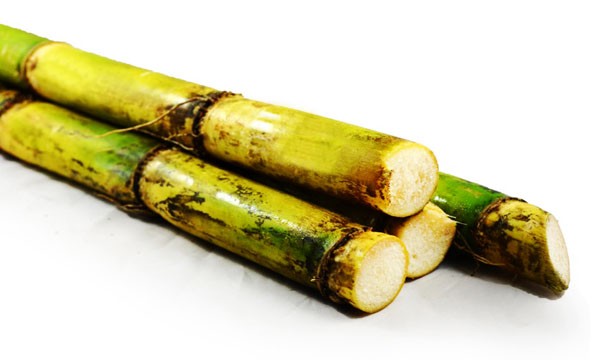A Thorough Overview of the Health and Economic Ramifications of Walking Cane Sugar Handling on Local Areas
Cane sugar processing plays a crucial role in shaping the economic landscape of neighborhood communities, providing employment possibilities and boosting ancillary industries. The health implications associated with high sugar usage can not be ignored, as they contribute to rising prices of excessive weight and diabetic issues.
Financial Advantages of Cane Sugar Processing
Walking cane sugar processing uses significant economic advantages that extend beyond the instant farming sector. The cultivation and processing of sugarcane produce numerous task chances, from farming to production and distribution. This work generation not only sustains regional economies however likewise fosters community development by offering secure income sources for households.
Additionally, the sugar industry stimulates ancillary companies, consisting of transportation, equipment supply, and packaging solutions (Cane Sugar Processing). As these sectors grow, they contribute to an extra robust financial framework, boosting total area durability. The export capacity of refined walking cane sugar better enhances financial benefits, positioning areas as competitive gamers in worldwide markets
Investment in contemporary processing centers can lead to increased performance and performance, thereby reducing waste and enhancing resource use. This change not just benefits the local economic climate yet additionally supports sustainability efforts by minimizing environmental influences.
Furthermore, the profits produced from cane sugar processing can be reinvested in neighborhood facilities, education, and medical care, advertising alternative area growth. Overall, the economic advantages of walking cane sugar handling are diverse, providing a structure for withstanding prosperity in farming regions.
Health And Wellness Threats Linked With Sugar Intake
Too much sugar intake presents substantial health dangers that necessitate severe interest. High intake of added sugars, particularly from refined drinks and foods, has been connected to countless wellness difficulties.
In addition, high sugar consumption is associated with heart disease. Elevated blood sugar levels can lead to insulin resistance, a precursor to various heart-related issues. In addition, sugar can have harmful results on oral health and wellness, resulting in dental caries and periodontal disease, as germs in the mouth grow on sugar, generating acids that erode tooth enamel.
In addition, emerging study recommends a possible link in between high sugar consumption and psychological wellness problems, such as anxiety and anxiety. As communities grapple with these wellness dangers, it comes to be essential to promote understanding and urge healthier nutritional options. Attending to sugar intake is essential not only for private wellness but additionally for the overall health of regional neighborhoods, stressing the requirement for detailed public health strategies.
Ecological Influences of Sugar Production
Frequently forgotten in conversations about sugar's ramifications is the substantial environmental influence of sugar manufacturing. The cultivation of sugarcane commonly requires extensive land use, leading to deforestation, loss of biodiversity, and interruption of regional ecological communities. The conversion of forests and marshes right into sugar haciendas can lead to habitat damage, threatening countless types and altering ecological balance.
Moreover, sugar production is resource-intensive, consuming substantial amounts of water for irrigation. This can result in exhaustion of neighborhood water sources, negatively impacting both agricultural practices and community access to clean water. Additionally, using chemical plant foods and chemicals in sugarcane farming can add to soil destruction and water air pollution, as drainage from these chemicals enters neighboring rivers and lakes, resource affecting water life and human health and wellness.
The ecological footprint reaches the handling stage, where power consumption and waste generation more aggravate eco-friendly issues. Air pollution from shedding sugarcane areas, together with greenhouse gas discharges, contribute to environment adjustment. Thus, the environmental ramifications of sugar manufacturing warrant major factor to consider, advising stakeholders to take on more lasting methods to mitigate these adverse results on neighborhood communities and communities.
Work Creation and Area Advancement
The environmental challenges posed by sugar production are frequently reversed by its possibility for economic benefits, particularly in job creation and neighborhood advancement. The cane sugar industry acts as a significant source of employment in numerous country areas, providing jobs throughout numerous ability degrees, from farming labor to handling and distribution roles. This employment not only sustains individual families however additionally adds to the general economic vigor of local areas.
Moreover, the facility of sugar handling facilities promotes ancillary services, such as transportation services, equipment supply, and upkeep service navigate to this site providers. As these businesses thrive, they develop extra jobs and boost local economic climates. The revenue produced from the sugar sector likewise causes raised tax obligation profits, which can be reinvested into social work such as infrastructure, healthcare, and education and learning development.
Furthermore, the sugar market typically participates in neighborhood development campaigns, such as supporting neighborhood institutions and health programs, thus improving the top quality of life for residents. By promoting strong neighborhood ties and promoting economic development, the cane sugar processing industry plays a crucial function in uplifting regional populaces, making it an important part of lasting development approaches in sugar-producing regions.
Harmonizing Wellness and Economic Growth
In navigating the complexities of walking cane sugar processing, an important difficulty depends on balancing health factors to consider with financial growth. The sugar market considerably adds to local economies by creating tasks, boosting associated markets, and raising tax obligation revenues. Nevertheless, the health implications associated with extreme sugar intake can bring about persistent illness such as obesity, diabetic issues, and cardio problems, which can concern public health and wellness systems and decrease workforce efficiency.

Additionally, governing structures can play an essential duty in assisting sector practices in the direction of even more sustainable and health-conscious strategies. By promoting cooperation between government bodies, health organizations, and the sugar sector, areas can browse the duality of wellness and economic development, making certain that the advantages of walking cane sugar processing are equitably shared while prioritizing public health and wellness.
Conclusion
To conclude, the handling of cane sugar presents both significant economic benefits and noteworthy health and wellness dangers for local communities. While it cultivates job development and stimulates local growth, the Check This Out involved health and wellness problems, particularly relating to excessive weight and diabetes, require a mindful harmonizing act. By promoting liable usage and investing in area education and learning and lasting practices, it is possible to maximize financial advantages while reducing negative wellness results, therefore guaranteeing a healthier future for regional populations.
Furthermore, sugar can have detrimental effects on dental health, resulting in dental caries and gum illness, as bacteria in the mouth prosper on sugar, creating acids that wear down tooth enamel.
Addressing sugar usage is essential not only for private health and wellness yet also for the general health of local neighborhoods, stressing the demand for detailed public health and wellness approaches.
Regularly forgotten in discussions regarding sugar's implications is the considerable ecological effect of sugar production. The wellness effects associated with excessive sugar consumption can lead to chronic diseases such as obesity, diabetes mellitus, and cardiovascular issues, which can concern public health and wellness systems and diminish workforce productivity.
